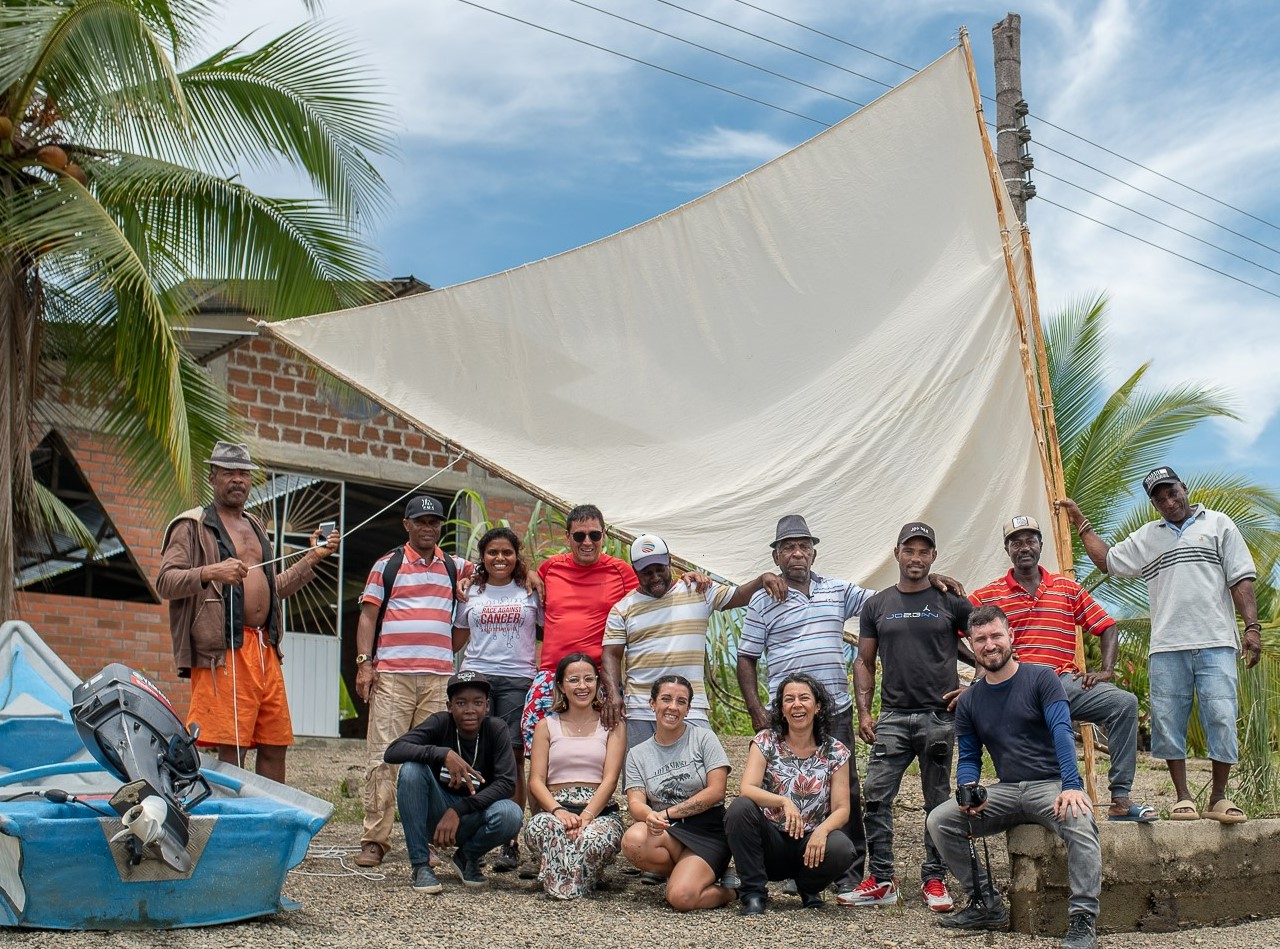Fieldwork with local fishing communities in Colombia to co-create more sustainable futures

Local knowledge at the forefront in transdisciplinary co-creation project of finding solutions for sustainable development.
Gauri Salunkhe , a Master’s student in Sustainable Technology at SEED, KTH, has completed a three-month field study in Colombia , funded by the Swedish International Development Cooperation Agency (Sida) as part of the Pacífico Econavipesca project . The project aims to develop a sustainable artisanal fishing model, that will reduce the environmental, social, and economic impacts on the ecosystem.
The project, which started in 2020, aims to actively involve local communities through co-creation to develop a sustainable artisanal fishing model in the municipality of Guapi, Cauca, at the Pacific west coast of Colombia. The KTH field study focused on understanding community engagement, co-creation strategies and actor interactions to identify challenges and opportunities for sustainability of the project.
Together with Katarina Larsen , supervisor and researcher at KTH, Division of History of Science, Technology and Environment, and Magnus Lindqvist , Senior Advisor at the KTH International Relations Office, Gauri Salunkhe embarked on a deep dive into the community, together with the project team in Colombia.
Local knowledge is at the forefront of the project. Activities carried out have provided a space for different actors, beyond the fishermen, to be involved in solution creation. For example, women, who are an important part of the fishing process can be made more visible in the value creation.
A key challenge is to include youth in creating sustainable solutions as their participation determines the future of how fishing activities will develop in Guapi. Local skills such as sail-making which were on the verge of being lost with modern technologies have also been revived. The project continues to be implemented during 2023.
Experiences from the fieldwork in this project highlight that transdisciplinary co-creation is at the core of finding solutions for sustainable development. It is when the community is actively involved through continuous dialogues and takes initiative that they would be able to create and maintain solutions for themselves, which is required for long-term sustainability. The networks between different local actors should be strengthened to increase overall capacity of individuals and local organisations to improve social, economic and environmental conditions.
- We wish to thank all participants in the project for their genuine commitment to the project and, in particular, the local fishing community representatives for sharing their knowledge, stories and unforgettable experiences on the river of Guapi, says Gauri Salunkhe.
Participants in the Pacífico Econavipesca project include the fishing associations of Guapi, Colombia, local and regional authorities, and the following academic partners: Universidad Nacional de Colombia (Colombia), Universidad del Cauca (Colombia), KTH Royal Institute of Technology (Sweden), and Lund University (Sweden).
More information on the Pacífico Econavipesca project can be found here .
Full article with fieldwork experiences and audio-visual material was published on the WaterBlog@KTH on 10 March 2023. See blog-post titled “Transdisciplinary co-creation on the river in search for more sustainable futures – fieldwork experiences with local fishing communities in Colombia”.
